Find Help
More Items From Ergsy search
-
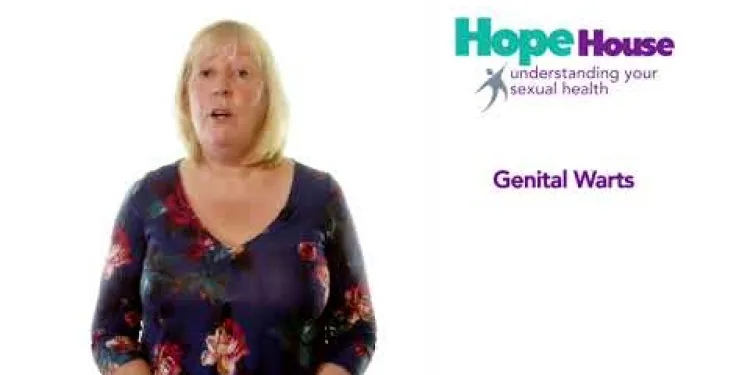
Understanding Your Sexual Health - Genital Warts
Relevance: 100%
-
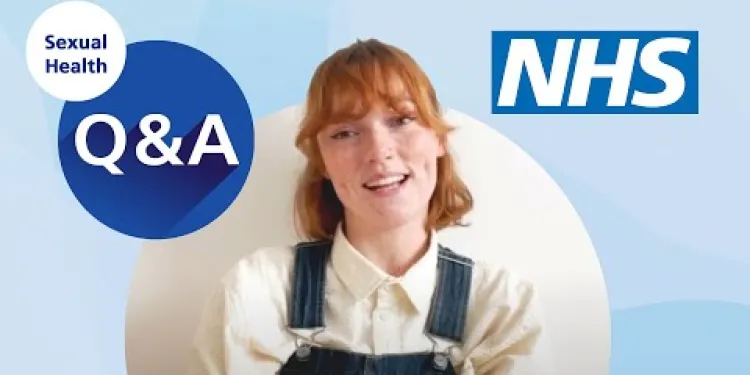
Sexually transmitted infections STIs
Relevance: 42%
-

Understanding Your Sexual Health - Herpes
Relevance: 41%
-

What health problems can HPV cause?
Relevance: 37%
-
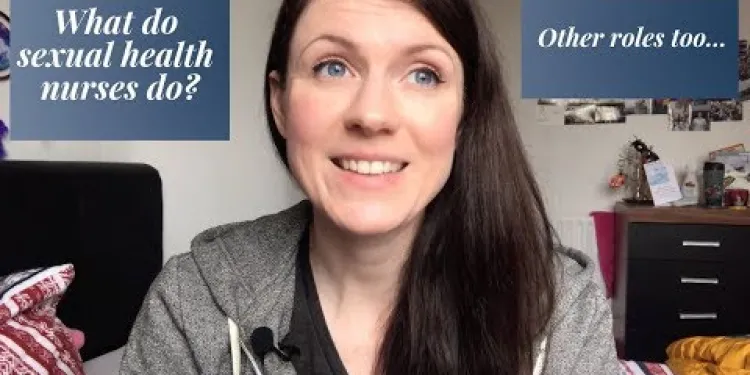
The Different Roles in Sexual Health and Family Planning UK
Relevance: 36%
-
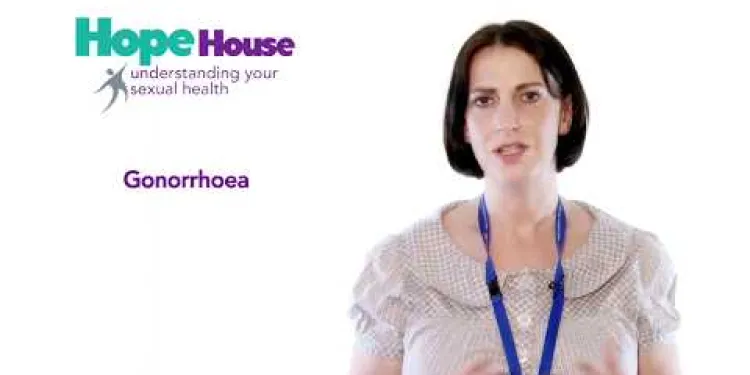
Understanding Your Sexual Health - Gonorrhoea
Relevance: 34%
-
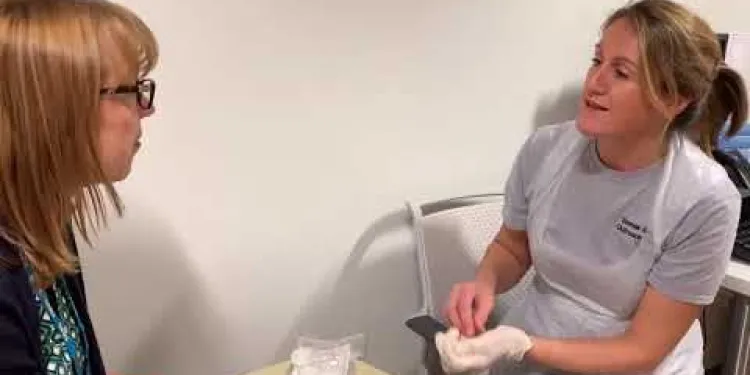
Sexual Health - HIV Testing
Relevance: 33%
-
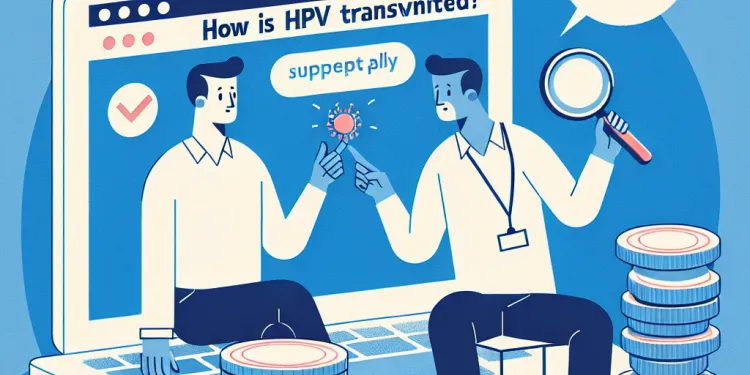
How is HPV transmitted?
Relevance: 32%
-
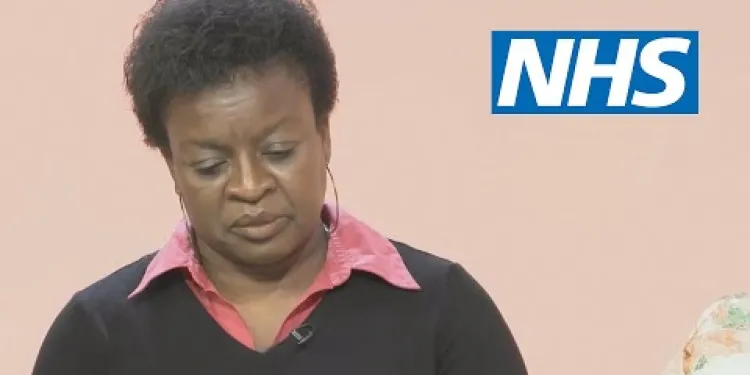
Female Genital Mutilation: The Facts | NHS
Relevance: 32%
-

Are there symptoms of an HPV infection?
Relevance: 32%
-
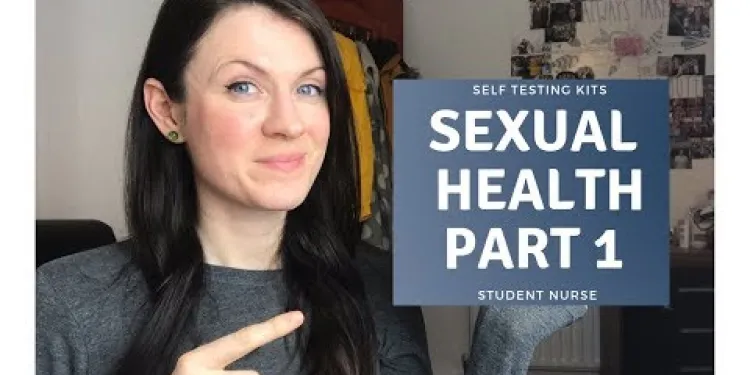
Let's Talk Sexual Health - Home Self Testing Kits
Relevance: 32%
-

Can gonorrhoea infect areas other than the genital organs?
Relevance: 32%
-

Let's Talk Sexual Health - Home Self Testing Kits
Relevance: 31%
-

Understanding Your Sexual Health - Pelvic Inflammatory Disease
Relevance: 31%
-

NHS STI (Sexually Transmitted Infections) Information Video
Relevance: 30%
-
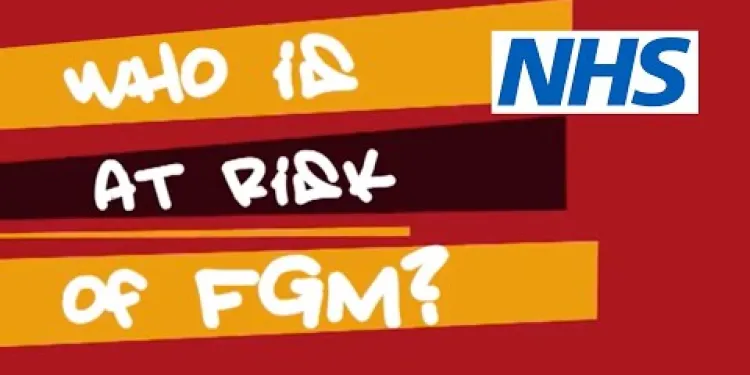
Female genital mutilation (FGM) | NHS
Relevance: 30%
-

How common is HPV?
Relevance: 30%
-

Can HPV be treated?
Relevance: 30%
-
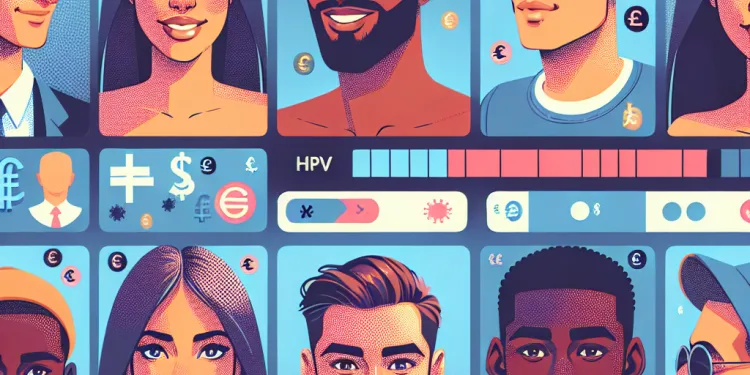
Can HPV affect both men and women?
Relevance: 29%
-

Do men need the HPV vaccine?
Relevance: 29%
-
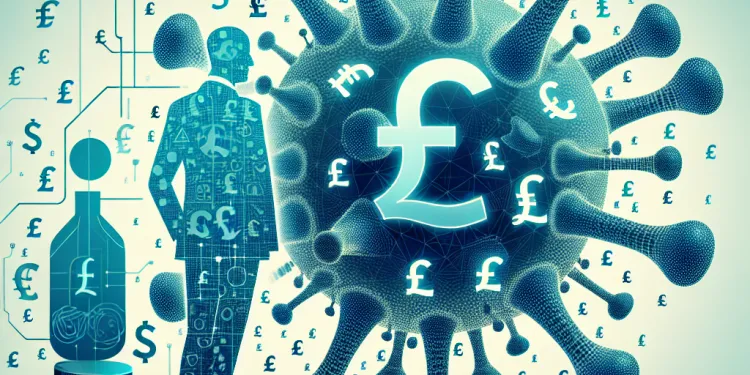
What is the HPV Virus?
Relevance: 28%
-
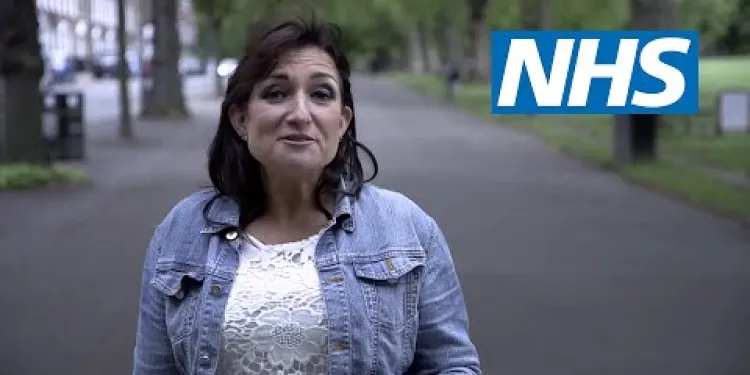
Women talking about their personal experiences of female genital mutilation (FGM) | NHS
Relevance: 25%
-
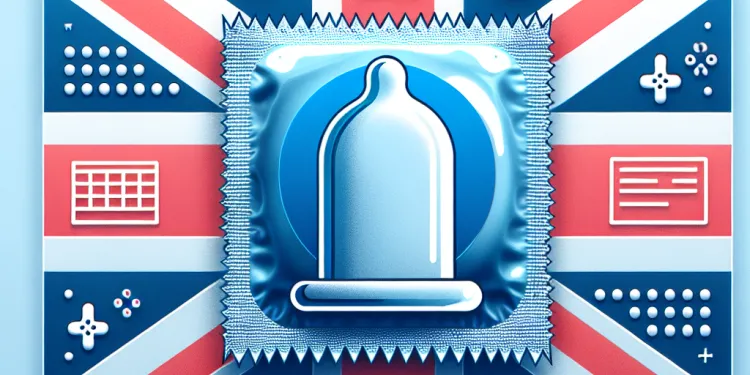
Can using condoms fully protect against HPV?
Relevance: 24%
-
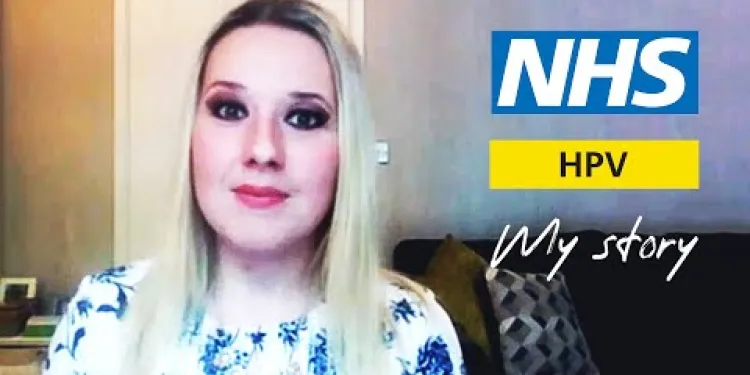
HPV - My Story | NHS
Relevance: 23%
-
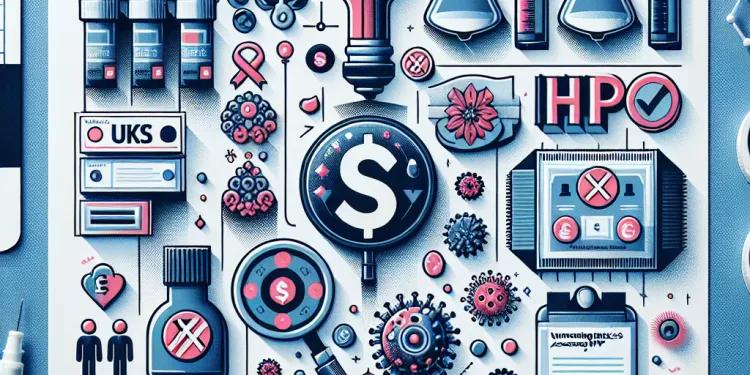
What age group is most at risk for HPV?
Relevance: 23%
-

Three-year limit for child sexual abuse claims to be removed
Relevance: 23%
-

How can HPV be prevented?
Relevance: 22%
-

Cervical screening for women who have experienced sexual assault | NHS
Relevance: 22%
-
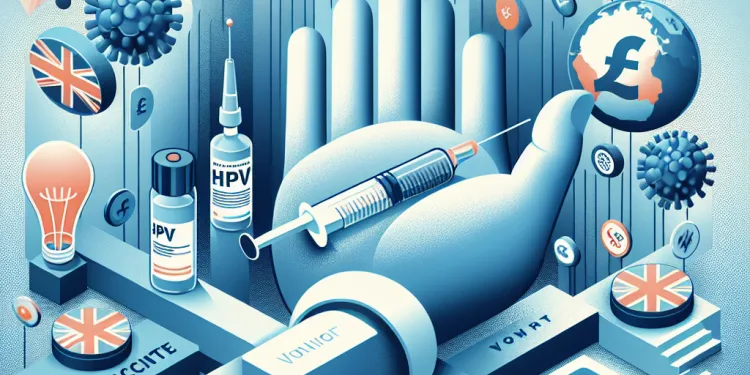
Who should get the HPV vaccine?
Relevance: 21%
-
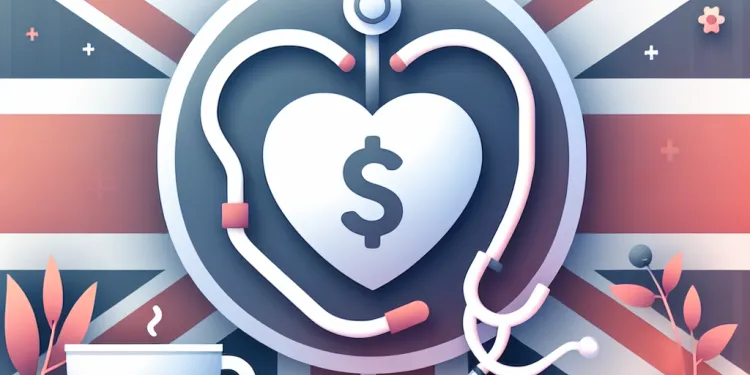
What should one do if they suspect they have gonorrhoea?
Relevance: 18%
-

What is Gonorrhoea?
Relevance: 18%
-
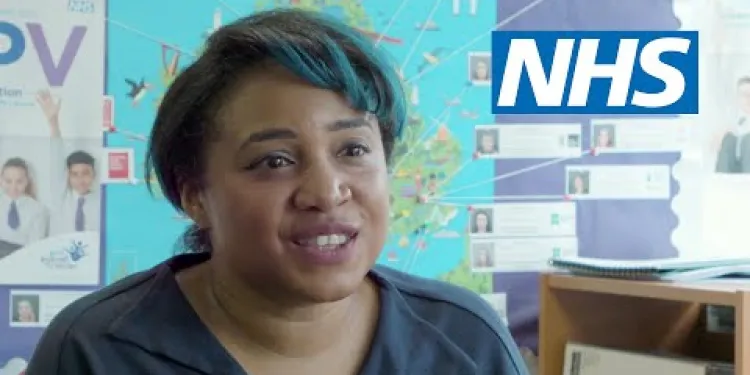
What is the year 8 HPV vaccine? | NHS
Relevance: 17%
-

Can gonorrhoea be prevented?
Relevance: 17%
-
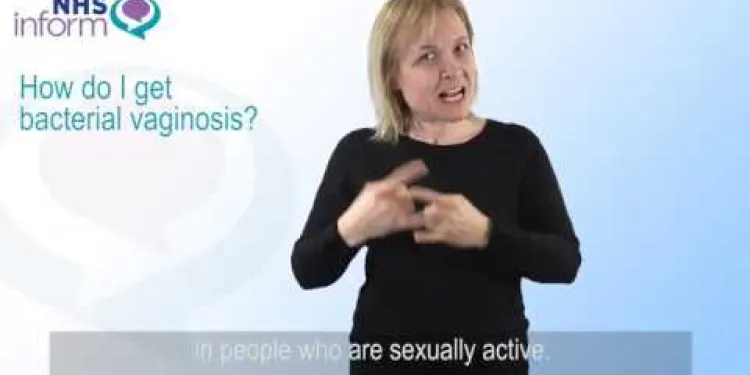
Bacterial vaginosis
Relevance: 16%
-
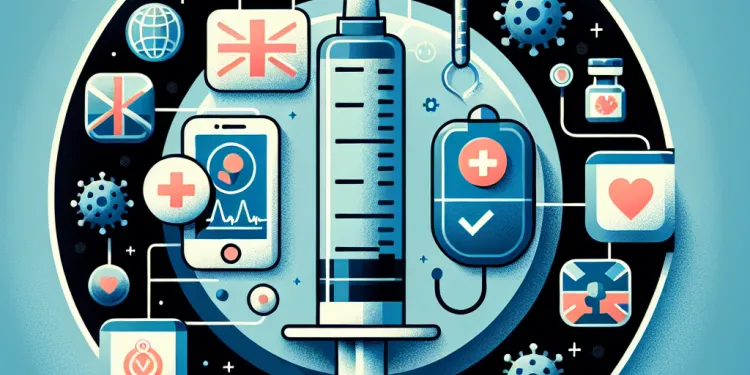
Is there a vaccine for HPV?
Relevance: 16%
-

What is 'the clap'?
Relevance: 15%
-
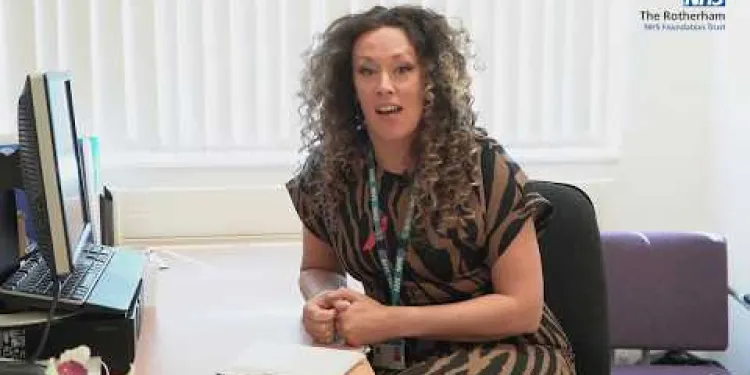
Vaginal Swab test for Gonorrhoea and Chlamydia
Relevance: 15%
-
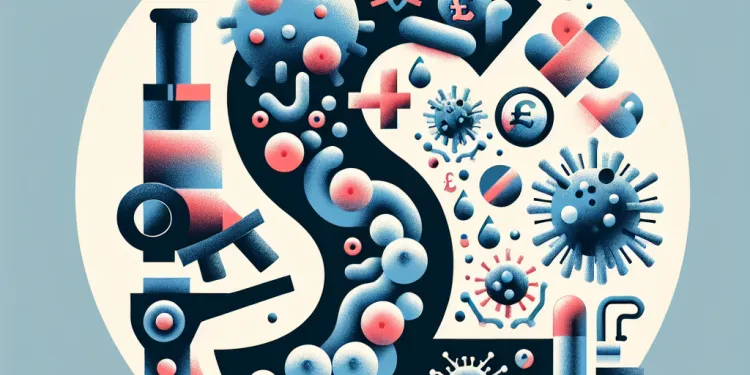
What is chlamydia?
Relevance: 15%
-
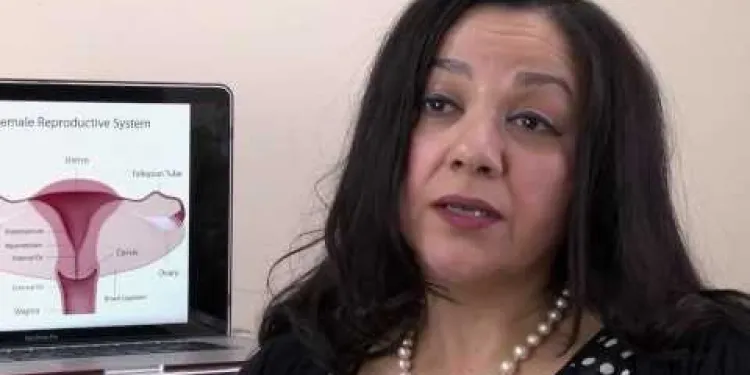
Chlamydia: The Silent Threat
Relevance: 15%
-

How is gonorrhoea transmitted?
Relevance: 15%
Understanding Your Sexual Health - Genital Warts
What Are Genital Warts?
Genital warts are a common sexually transmitted infection (STI) caused by certain strains of the human papillomavirus (HPV). They appear as small, flesh-colored bumps that can occur on the genital and anal areas. While they are typically painless, they can sometimes cause discomfort, itching, or bleeding. It is important to understand that not all strains of HPV result in genital warts, as some can lead to more serious health issues, such as cervical cancer.How Are Genital Warts Transmitted?
Genital warts are transmitted through skin-to-skin contact during vaginal, anal, or oral sex with someone who has the virus. It's worth noting that HPV can be transmitted even when an infected person has no visible warts, making it crucial to practice safe sex. The use of condoms can significantly reduce the risk of transmission, but they do not provide 100% protection as warts can infect areas not covered by a condom.Preventive Measures and Vaccination
In the UK, the HPV vaccine is offered to boys and girls aged 12-13 as part of the NHS vaccination programme. The vaccine covers the HPV types that most commonly cause genital warts and cervical cancer. While vaccination greatly reduces the risk, it doesn't eliminate the necessity for regular sexual health check-ups and the use of protective measures such as condoms.Treatment Options
While genital warts can sometimes disappear on their own, treatment can help remove visible warts and alleviate symptoms. Treatments include topical creams, cryotherapy (freezing the warts), and surgical removal. It's advised to consult with a healthcare provider to determine the most appropriate treatment. Additionally, treating genital warts does not eliminate HPV from the body, and the virus can still be transmitted to sexual partners.Living with Genital Warts
A diagnosis of genital warts can be distressing, but it is manageable with the right care and lifestyle adjustments. It’s important to communicate openly with sexual partners and healthcare providers about the condition. Regular check-ups and practising safe sex can help in managing and reducing outbreaks. Also, mental health support can be beneficial for dealing with the emotional impact of STIs. Staying informed and proactive about sexual health is essential. For more information and services, you can visit various sexual health clinics throughout the UK or consult with your GP.Understanding Your Sexual Health - Genital Warts
What Are Genital Warts?
Genital warts are bumps on the skin in private areas. These are caused by a virus called HPV. The bumps are usually small, skin-colored, and don't hurt. Sometimes, they might itch or bleed a little. Not all types of HPV cause warts. Some are more serious and can cause illnesses like cervical cancer.How Are Genital Warts Spread?
Genital warts spread through skin-to-skin contact. This can happen during sex if the other person has the virus. You can still catch HPV even if you can't see any warts. Using condoms helps protect you but is not 100% safe because warts can be on skin not covered by the condom.How to Prevent Genital Warts
In the UK, boys and girls aged 12-13 can get the HPV vaccine at school. This vaccine helps stop the types of HPV that cause warts and cancer. Even if you have the vaccine, you should still have health check-ups and use condoms to stay safe.How to Treat Genital Warts
Sometimes, genital warts go away on their own. But if they don't, doctors can help remove them. Treatments include creams, freezing the warts, or surgery. Talk to a doctor to find the best treatment for you. Remember, treating warts doesn’t remove the HPV virus, so you can still pass it on.Living with Genital Warts
Having genital warts can be tough, but you can manage it with the right help. Talk openly with partners and doctors about it. Regular check-ups and safe sex can help control the warts. If you feel upset about having warts, talking to someone can help you feel better. It’s important to know how to keep yourself healthy. You can visit sexual health clinics in the UK or talk to your doctor for more help and information.Frequently Asked Questions
What are genital warts?
Genital warts are a common sexually transmitted infection (STI) caused by certain strains of the human papillomavirus (HPV). They appear as small growths or bumps on the genital or anal area.
How are genital warts transmitted?
Genital warts are transmitted through skin-to-skin contact during vaginal, anal, or oral sex with an infected person.
What do genital warts look like?
Genital warts can be flesh-coloured or slightly darker and may be raised or flat. They often resemble small cauliflower-like bumps and can appear singly or in clusters.
Can genital warts be treated?
Yes, genital warts can be treated, but treatment focuses on removing the visible warts rather than curing the HPV infection itself. Options include topical treatments, cryotherapy, and surgical removal.
Is there a cure for HPV?
There is no cure for HPV, but in many cases, the body's immune system clears the virus on its own over time. However, some strains of HPV can persist and cause complications.
Can genital warts come back after treatment?
Yes, genital warts can recur after treatment because the underlying HPV infection may remain in the body. Recurrence rates vary among individuals.
How common are genital warts in the UK?
Genital warts are one of the most common STIs in the UK, with thousands of new cases diagnosed each year.
How can I prevent getting genital warts?
Prevention methods include getting the HPV vaccine, using condoms during sexual activity, and having regular sexual health check-ups.
Who should get the HPV vaccine?
The HPV vaccine is recommended for both boys and girls aged 11-12, but it can also be given to older teens and adults up to the age of 45.
Can genital warts cause cancer?
The strains of HPV that cause genital warts do not typically cause cancer. However, other high-risk strains of HPV can lead to cervical, anal, and other types of cancer.
Should I see a doctor if I think I have genital warts?
Yes, if you suspect you have genital warts, you should see a healthcare provider for diagnosis and treatment options.
Can genital warts affect my pregnancy?
Genital warts do not usually affect pregnancy or the health of the baby, but it's important to inform your healthcare provider if you have them.
Can I still have sex if I have genital warts?
It's advised to avoid sexual contact while warts are present to reduce the risk of transmitting the virus to your partner.
Do genital warts only affect people who have multiple sexual partners?
Genital warts can affect anyone who is sexually active, even if they have only had one sexual partner.
Is there a test for genital warts?
Genital warts are usually diagnosed through a visual examination by a healthcare provider. There isn't a routine test for the HPV strains that cause genital warts.
What are genital warts?
Genital warts are small bumps on the skin. They can be on private parts. They are caused by a virus. The virus is called HPV. It's important to see a doctor if you think you have them.
Helpful Tools:
- Ask a grown-up if you need help.
- Use pictures to understand better.
- Ask your doctor questions if you don't understand.
Genital warts are a common infection you can get from sex. They are caused by a virus called HPV. These warts look like small bumps that can grow on your private parts or near your bottom.
How do people get genital warts?
You can get genital warts by touching the skin of someone who has them during sex. This can be when you have vaginal, anal, or oral sex with a person who has the infection.
What do genital warts look like?
Genital warts are small lumps you might find on your skin. They can be white, pink, or skin-colored.
These lumps can be smooth or bumpy.
It is important to see a doctor if you think you have genital warts.
Using a magnifying glass might help you see them better.
If reading is hard, ask someone you trust to read it with you.
Genital warts are small bumps on the skin. They can be the same color as your skin or a bit darker. Sometimes they stick up, and sometimes they are flat. They might look like tiny cauliflower pieces. You can have one wart or a group of them together.
Can genital warts be treated?
Yes, genital warts can be treated. If you have warts, go to the doctor. The doctor can help make them better. Sometimes they use creams. Other times, they use a special tool to remove them.
If you want help reading or understanding, ask someone you trust to help you. You can also use pictures or easy-to-read books about health.
Yes, you can treat genital warts. But the treatment helps get rid of the warts you can see. It does not cure the virus (HPV) that causes them. You can use creams, freeze the warts, or have surgery to take them away.
Can HPV be cured?
HPV means human papillomavirus. It is a virus that can affect people. There is no cure for HPV. But most of the time, the body's own immune system can get rid of it.
Here are some tips that can help:
- Get regular check-ups with your doctor. This can help find any problems early.
- There are vaccines that can help protect you against some types of HPV.
- Healthy habits like eating well, sleeping enough, and washing hands can help your body stay strong.
HPV is a virus. There is no medicine to make it go away completely. But often, your body can fight the virus by itself over time. Sometimes, the virus can stay in your body and cause problems.
Can genital warts come back after treatment?
Yes, genital warts can come back after you treat them. This happens because the virus that causes the warts might still be in your body.
Here are some tips to help:
- Keep your skin healthy and clean.
- Talk to your doctor if you have questions or worries.
- If the warts come back, see your doctor for more help.
Yes, genital warts can come back after you treat them. This is because the HPV virus might still be in your body. People get warts again at different rates.
How often do people get genital warts in the UK?
Genital warts are small bumps on private parts. They are a type of virus. In the UK, many people have them.
Genital warts are common and can be treated by a doctor. It is important to see a doctor if you have bumps.
To help understand more, you can:
- Use picture guides or videos to learn about genital warts.
- Ask a friend or family member to read with you.
- Visit a clinic for advice. They can help explain.
Genital warts are a type of infection that you can get when you have sex. Many people in the UK get this infection every year.
How can I stop from getting genital warts?
Genital warts are small bumps on the skin. They can appear on private parts. They are caused by a virus called HPV.
Here's how to help stop getting genital warts:
- Get the HPV vaccine: A doctor can give you a special shot that helps protect you from the virus.
- Use condoms: Wearing a condom during sex can help keep you safe.
- Talk to your partner: It is important to talk about staying healthy with the person you have sex with.
- Go for check-ups: Visit the doctor regularly to make sure everything is okay.
If you want more help or have questions, tell a doctor or a trusted adult. They can give you good advice and help.
To stay healthy, you can:
- Get the HPV vaccine. It helps stop you from getting some types of the virus.
- Use condoms when you have sex. This helps keep you safe.
- Go for regular check-ups. A doctor can help make sure everything is okay.
These steps can help you stay safe and healthy. You can also use tools like reminders on your phone to remember check-ups, or ask someone you trust to help you.
Who should get the HPV vaccine?
The HPV vaccine helps protect you from a virus that can make you sick. It is important to know who needs it.
- Kids and Teens: Kids should get the vaccine when they are 11 or 12 years old. Teenagers who did not get the vaccine before can still get it later.
- Young Adults: Young adults can get the vaccine if they did not get it when they were younger. It is good for people up to 26 years old.
If you are not sure what to do, ask your doctor or nurse. They can help you decide what is best for you.
It is a good idea for boys and girls to get the HPV shot when they are 11 or 12 years old.
Older teenagers and adults can get the shot too, up to the age of 45.
Some people find using pictures or videos can help them understand more about the HPV shot.
Can genital warts cause cancer?
Genital warts are small bumps on the skin. They are caused by a virus called HPV.
Some types of HPV can cause cancer. But the types that cause genital warts usually do not cause cancer.
If you have genital warts, it is good to see a doctor for help.
Using protection like condoms can help keep you safe from HPV.
HPV is a virus. Some kinds of HPV give you bumps called genital warts. These types do not usually cause cancer. But other types of HPV can cause cancer in places like the cervix and anus.
If you want help reading, you can try using audiobooks or apps that read out loud. Drawing pictures of what you read can also help you understand better.
Do I need to see a doctor if I think I have genital warts?
If you think you have genital warts, it is good to see a doctor.
A doctor can help you find out if you have them and tell you what to do next.
Here are some tips to help you:
- Ask a family member or friend to go with you to the doctor.
- Write down your questions so you remember to ask them.
- Look for pictures or videos that explain things clearly.
If you think you have genital warts, you should visit a doctor. They can help you find out what's wrong and tell you how to treat it.
Can genital warts cause problems during my pregnancy?
Genital warts are small bumps in your private areas. If you are pregnant, it's important to talk to your doctor about them. Your doctor can help make sure you and your baby stay healthy. Here are some things to remember:
- Tell your doctor if you have genital warts.
- Your doctor will tell you what to do to stay healthy.
- Some medicines might not be safe during pregnancy.
- Keep regular check-ups with your doctor.
To help understand more, you can:
- Ask questions if you are unsure about anything.
- Use pictures or drawings to learn more.
- Ask a family member or friend to help you.
Genital warts usually do not cause problems for pregnancy or the baby. But it is important to tell your doctor if you have them.
Can I have sex if I have genital warts?
Yes, you can have sex if you have genital warts. But it's important to keep a few things in mind:
- Talk to your partner: Let them know about your warts before having sex. This helps them understand and decide what feels okay for them.
- Use protection: Things like condoms can help lower the chance of sharing warts.
- See a doctor: A doctor can give you advice and help you with treatment.
Tools for help:
- Pictures: Look at pictures that show what's happening. They might help you understand better.
- Ask questions: Don't be afraid to ask a doctor or someone you trust for help. They can give you answers that help you feel more comfortable.
It is important not to have sex when you have warts. This helps stop the virus from spreading to your partner.
- Talk to your doctor for more advice.
- Use gentle soap to clean the area.
- Ask a friend or family member for support.
Can you get genital warts if you have only one sexual partner?
Genital warts can affect anyone, even if you have just one sexual partner. They are caused by a virus called HPV, which you can get through sexual contact. It's not only people with many partners who can get them.
If you're worried about genital warts, talk to a doctor or nurse. They can help you understand and manage your health.
Using protection, like condoms, during sex can lower the risk of getting genital warts.
People can get genital warts if they have had sex. This can happen even if they have only had one boyfriend or girlfriend.
Can doctors test for genital warts?
Yes, doctors can look to see if you have genital warts. Here is what they might do:
- Look at the bumps on your skin.
- Ask you about any changes or feelings in that area.
- Use a special light or tools to see better.
If you think you have genital warts, visit a doctor. They can help you find out. A parent or guardian can go with you if you like.
For support, you can talk to a trusted adult about your worries.
The doctor looks at your skin to see if you have genital warts. There isn’t a regular test for the virus that causes these warts.
Useful Links
Have you found an error, or do you have a link or some information you would like to share? Please let us know using the form below.
-->
This website offers general information and is not a substitute for professional advice.
Always seek guidance from qualified professionals.
If you have any medical concerns or need urgent help, contact a healthcare professional or emergency services immediately.
Some of this content was generated with AI assistance. We’ve done our best to keep it accurate, helpful, and human-friendly.
- Ergsy carfully checks the information in the videos we provide here.
- Videos shown by Youtube after a video has completed, have NOT been reviewed by ERGSY.
- To view, click the arrow in centre of video.
- Most of the videos you find here will have subtitles and/or closed captions available.
- You may need to turn these on, and choose your preferred language.
- Go to the video you'd like to watch.
- If closed captions (CC) are available, settings will be visible on the bottom right of the video player.
- To turn on Captions, click settings .
- To turn off Captions, click settings again.
More Items From Ergsy search
-

Understanding Your Sexual Health - Genital Warts
Relevance: 100%
-

Sexually transmitted infections STIs
Relevance: 42%
-

Understanding Your Sexual Health - Herpes
Relevance: 41%
-

What health problems can HPV cause?
Relevance: 37%
-

The Different Roles in Sexual Health and Family Planning UK
Relevance: 36%
-

Understanding Your Sexual Health - Gonorrhoea
Relevance: 34%
-

Sexual Health - HIV Testing
Relevance: 33%
-

How is HPV transmitted?
Relevance: 32%
-

Female Genital Mutilation: The Facts | NHS
Relevance: 32%
-

Are there symptoms of an HPV infection?
Relevance: 32%
-

Let's Talk Sexual Health - Home Self Testing Kits
Relevance: 32%
-

Can gonorrhoea infect areas other than the genital organs?
Relevance: 32%
-

Let's Talk Sexual Health - Home Self Testing Kits
Relevance: 31%
-

Understanding Your Sexual Health - Pelvic Inflammatory Disease
Relevance: 31%
-

NHS STI (Sexually Transmitted Infections) Information Video
Relevance: 30%
-

Female genital mutilation (FGM) | NHS
Relevance: 30%
-

How common is HPV?
Relevance: 30%
-

Can HPV be treated?
Relevance: 30%
-

Can HPV affect both men and women?
Relevance: 29%
-

Do men need the HPV vaccine?
Relevance: 29%
-

What is the HPV Virus?
Relevance: 28%
-

Women talking about their personal experiences of female genital mutilation (FGM) | NHS
Relevance: 25%
-

Can using condoms fully protect against HPV?
Relevance: 24%
-

HPV - My Story | NHS
Relevance: 23%
-

What age group is most at risk for HPV?
Relevance: 23%
-

Three-year limit for child sexual abuse claims to be removed
Relevance: 23%
-

How can HPV be prevented?
Relevance: 22%
-

Cervical screening for women who have experienced sexual assault | NHS
Relevance: 22%
-

Who should get the HPV vaccine?
Relevance: 21%
-

What should one do if they suspect they have gonorrhoea?
Relevance: 18%
-

What is Gonorrhoea?
Relevance: 18%
-

What is the year 8 HPV vaccine? | NHS
Relevance: 17%
-

Can gonorrhoea be prevented?
Relevance: 17%
-

Bacterial vaginosis
Relevance: 16%
-

Is there a vaccine for HPV?
Relevance: 16%
-

What is 'the clap'?
Relevance: 15%
-

Vaginal Swab test for Gonorrhoea and Chlamydia
Relevance: 15%
-

What is chlamydia?
Relevance: 15%
-

Chlamydia: The Silent Threat
Relevance: 15%
-

How is gonorrhoea transmitted?
Relevance: 15%


